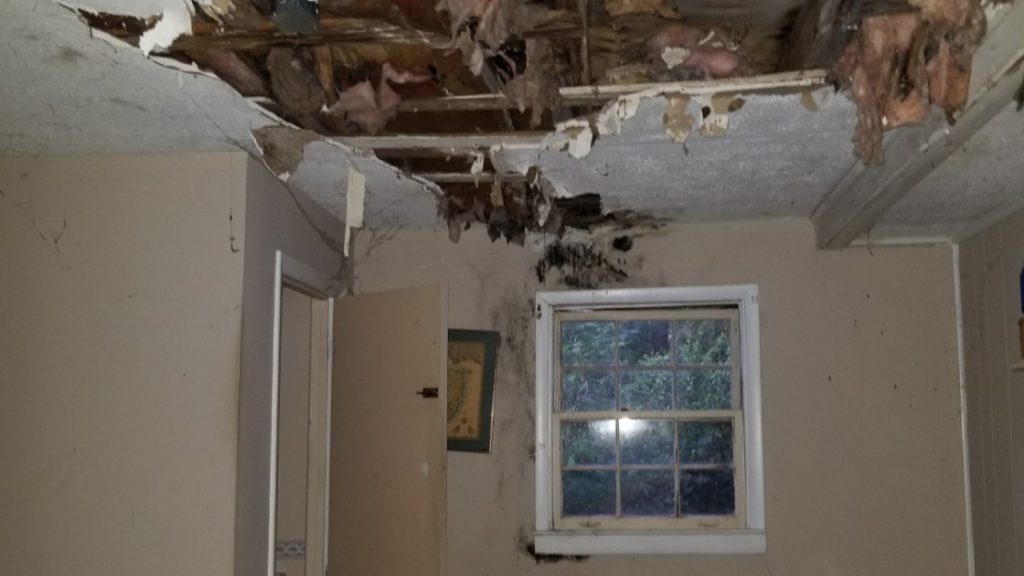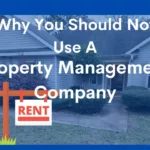Forget antiqued guidelines or an outdated rule of thumb. I’ll teach you to figure out how much operating expenses are for a rental house. There are probably a lot more than you think. I use data and academic studies to predict the monthly operating costs of rental houses, and this article will give you an easy-to-use formula for doing the same. Estimating rental expenses has always been a guess, but now empirical research shows you can forecast an accurate estimate.
Research shows that the total operating expenses of a single-family rental are 42% of the gross rental income. Therefore a property with a rental income of $24,000 per year should have operating expenses averaging $10,080 annually. This number does not include any mortgage payments.
This article will detail how these operating expenses are defined and how the average operating expense ratio is calculated. I’ll refer to academic papers and my experience to determine the most accurate operating expense forecast. I’ll also share some data from my portfolio. Ultimately, you will fully understand the impact of operating expenses and have an easy formula for quickly estimating these expenses as a percentage of the market rent.
Why does the Operating Expense Ratio matter?

For real estate investors, it is cruicial to know how much operating expenses are for a rental house. Positive cash flow is an essential aspect of owning a rental property. Sure, you may get some appreciation, and the tax deductions are a great perk, but without positive cash flow, staying in the game long enough to realize other benefits is challenging. Cash flow is what enables you to meet current and unforeseen financial obligations. The higher your passive income, the easier it is to adjust to other challenges you face.
As a rental property investor, your primary threat to positive cash flow is your operating expenses. Many of these expenses occur over and over throughout the life of your rental property investment. It would be best to learn to estimate the operating expense you will encounter accurately. This article intends to present an accurate way to determine your long-term operating expenses and, therefore, your cash flow.
What are the Expenses for a Rental House?

Operating Expenses (OPEX) are the expenses a business incurs through its regular operation. Single-family rentals include expenditures such as property taxes, insurance premiums, property management fees, and routine maintenance. Rental property owners must understand these costs and devise a model to forecast them accurately.
Below are some examples of expenses you are likely to incur. It’s not an all-inclusive list; some costs may vary based on the legal environment in a different area. The overarching goal of this article is to determine a simple and quick formula to estimate these expenses. After you have experience in this field, you can tweak the estimate to account for local variations.
Property Taxes
A Property tax is an annual tax levied on the property’s value. It’s simple to calculate as the county assessor will often publish the rules and value of the current property taxes. You should be able to forecast this value accurately, but it’s included in our formula as a convenience.
Insurance Premiums
Insurance will provide financial protection for your real estate assets and personal and business protection if someone is injured on your property. Many insurance agencies will give you a price quote, so this expense is straightforward to forecast.
Routine Maintenace
Regular maintenance costs are the unpredictable expenses required to keep your investment property in good condition. These repair costs will be used to repair broken windows, missing shingles, plumbing problems, electrical issues, pest control, and most problems tenants report. In addition, this includes the cost of refreshing the property between tenants.
Property Management Fees
The management cost is the cost you pay someone else to manage your rental property. A property manager often charges a modest flat fee and a percentage of the rent. Generally, I recommend you manage the properties yourself until you have more experience and more than 15 properties. After that, it’s best to hire a part-time employee to help manage your properties.
Capital Improvements

Capital improvements can be thought of as home improvements. This includes things like replacing the roof or the HVAC system. Generally, from a tax perspective, these large items are capitalized and depreciated over several years. If large items are near their end of life when purchasing the property, but sure to factor in this high cost. In some cases, I go ahead and do the replacement immediately.
Marketing Costs
The advertising and marketing costs for your vacant property will vary based on your marketing approach. Many landlords only put out a sign to attract tenants, while others run a considerable advertising campaign. If you plan extensive marketing, remember to adjust your cash flow figure.
Legal Fees
Fees for legal services and legal advice, such as the cost of an eviction. Hopefully, this is not a cost you frequently encounter with your rental business. If it is, you should work on your tenant selection criteria.
What about Loan Payments?
A monthly mortgage payment is not considered an operating expense. Generally, the interest payments on a loan are an operating expense for your income taxes. The principal amount of your loan payment will never be an operating expense. Just think of it as trading cash for equity. For every dollar you pay in principle, you receive a dollar in equity.
This article, and the associated research paper, do not consider mortgage interest as an operating expense. If you intend to have a mortgage on your property, the debt service will be a significant cash outlay. Be sure to adjust the cash flow estimate to include this payment.
How much are Operating Expenses?
Operating expenses are directly related to the property condition and how efficiently management runs the business. Some expenses, such as property tax and insurance, are easy to estimate in the short term. On the other hand, routine maintenance costs are primarily based on how efficiently management resolves issues. This is a great base to learn how much operating expenses for a rental house are.
Academic Research
A 2016 working paper, Rental Yields and HPA: The Returns to Single Family Rentals, from UCLA Anderson School of Management, states that “on average, net yields are about 60% of gross yields”. This paper uses data from 1986 to 2014 collected by the American Housing Survey conducted by the US Census Bureau. The report concluded that rental properties have a mean expense ratio of 42% of the rent. Using this paper for reference, we can estimate operating expenses at 40% of the rent. I should note that this report is the first study of total returns to single family homes over such a long time period
My Actual Expense Ratio
My Five Year Expense Ratio
After scrutinizing the research paper, I analyzed my current rental portfolio of 68 single-family rentals. I performed this analysis over five years and adjusted for the properties I no longer own. I found an expense ratio of 39.97%, slightly better than the 42% in the article above. Keep in mind that my analysis was over five years, while the paper used 28 years of data. I expect my expense ratio to approach that of the research paper as the time horizon grows.
My Expense Ratio from Last Year
As a third method for confirming the operating expense ratio, I pulled last year’s operating expenses from my accounting package. The table below shows my actual operating expenses for the year 2022. This shows that I had a 45% operating expense ratio, higher than my previous five years and higher than the number predicted by the research paper.
I believe this expense increase is because I had a higher-than-normal tenant turnover rate in 2022. This was a result of the expiration of the recent eviction moratorium.
| Income | ||
| RENTS | $722,354.47 | |
| FEES | $49,429.04 | |
| Total Operating Income | $771,783.51 | |
| Expenses | ||
| CLEANING/MAINTENANCE | $20,960.00 | |
| INSURANCE | $18,276.92 | |
| LEGAL/PROFESSIONAL FEES | $24,852.19 | |
| REPAIRS | $82,636.63 | |
| SUPPLIES | $12,810.89 | |
| HANDYMAN | $48,360.00 | |
| TAXES | $55,410.98 | |
| UTILITIES | $6,057.44 | |
| OTHER | $7,352.44 | |
| MANAGER | $72,817.00 | |
| Total Operating Expense | $349,534.49 | |
| NET INCOME | $442,249.02 |
Real World Reality Check!
WOW! My net income for 2022 was over $400,000. This sounds impressive, but remember, this is just a calculation of operating expenses. As mentioned earlier, this doesn’t include depreciation and debt service. After accounting for debt service, I was left with a cash flow of about $40,000 for the year, and I will owe taxes on a much larger number.
Conclusion
Using my data and the 2015 study by Andrew Demers and Andrea Eisfeldt, it’s safe to say that operating expenses are about 40% of the rent. This leads to a profit of about 60% of the rent. It should be stressed that this number is a rough estimate. Other factors, such as your vacancy rate, will affect your monthly expenses. However, due to the dynamic nature of real estate investing, it’s unlikely that we will be able to pinpoint a more accurate number. In some years, you will have many more expenses, which will be offset by lower costs in other years. If you stick with 40% of gross operating income, you should be close to the actual number over several years.
This paper thoroughly describes operating expenses for a rental house and estimates what those expenses should average as a percent of the rent. As mentioned above, debt service for a mortgage is not included in our operating expense ratio. I used academic research and my data to determine the expense ratio estimated in his article. Now you know how much the operating expenses are for your real estate investment.




